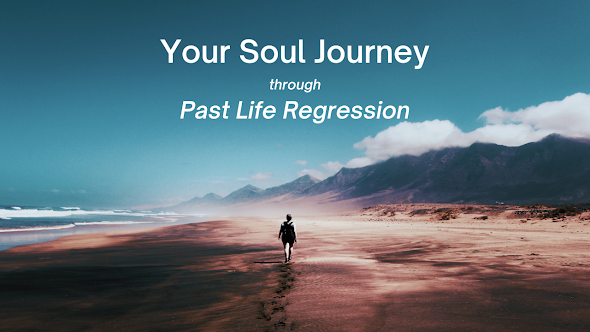Mind, Body, Stars: How Vedic Astrology Enhances Well-being
Vedic
astrology! The mere mention of astrology can stir diverse reactions, with some
labeling it a pseudoscience while others vouch for its rich tradition as a
profound science full of wisdom, passed down by the ancient Indian Rishis, and
compiled into texts for generations to benefit from.
I'm writing this blog as a believer and learner of Vedic astrology. As an enthusiast myself, I've delved into my own birth chart countless times, deepening my belief in this intricate subject. In the contemporary landscape, astrology has faced its fair share of scepticism, often met with sarcastic comments like, "If astrologers can predict so much, why aren't they billionaires?" or "Why can't they foresee their own immediate future?" These queries, while understandable, often miss the nuances that astrology entails.
 |
| PC: Google |
The
motivation behind this blog comes from a recent exchange with someone who not
only disbelieved in astrology but also dismissed it with baseless assertions.
When I inquired whether they had explored the subject or experienced it
firsthand, their answer was a resounding NO!
I'm about to explore Vedic astrology and how it’s wisdom can offer us insights into the amazing workings of the universe, but only if we're open to it. In my role as a Counselling Psychologist and Past Life Regression Therapist, I frequently use Vedic astrology and Numerology to aid my clients. This combination allows me to understand them on a deeper level, beyond what's immediately visible. Even in mainstream Psychology, we acknowledge that the moon's phases can affect a person's mind. For instance, someone with schizophrenia might be more stable during the new moon but might struggle more during the first quarter and full moon. This is just one example of how celestial bodies can influence our thoughts and emotions. Vedic astrology takes this idea further, involving lots of calculations that help us understand the energies of each planet and how they align with certain Nakshatras (star constellations). There are many complex calculations involved, but I won't go into all those details here.
Now, let's begin our journey by delving into the story of Maharishi Parashar, who thoroughly studied Vedic astrology. In the ancient kingdom of Magadh, Rishi Parashar, known for his deep devotion and curiosity, had a vision of the Rishi Naarad, who bestowed upon him the knowledge of Jyotish Shastra, the science of Vedic astrology. Rishi Parashar combined his spiritual wisdom and intuitive insights with cosmic observations, creating a comprehensive system that connected celestial influences to human lives. His teachings spread far and wide, guiding decisions and understanding karma. Rishi Parashar's legacy, documented in texts like the ‘Brihat Parashar Hora Shastra’, made him the father of Vedic astrology, leaving a timeless legacy of wisdom and guidance.
 |
| PC: Google |
Vedic
astrology enthusiasts, like me, believe that it is a beautiful science full of
wisdom and helpful to mankind for several reasons:
Ancient Wisdom: Vedic astrology is rooted in ancient Indian texts, particularly the Vedas, which are considered to be a repository of profound knowledge and wisdom. Followers of Vedic astrology believe that this system is a product of many great Rishis' deep insights into the universe, human psychology, and the interplay between celestial bodies and earthly events.
Holistic Approach: Vedic astrology takes a holistic approach to understanding life. It not only considers the positions and movements of celestial bodies but also incorporates the concepts of karm (action) and dharm (duty). This perspective suggests that our actions in past lives can influence our current circumstances, and by understanding these influences, individuals can work towards better alignment with their life's purpose.
Personal Guidance: Vedic astrology offers personalized insights into an individual's life by analyzing the positions of planets at the time of their birth. These positions influence various aspects of a person's life, such as personality traits, relationships, career, health, and more. By understanding these influences, individuals can gain deeper self-awareness and make informed decisions.
Timing and Events: Vedic astrology emphasizes the concept of ‘dashas’ or planetary periods, which are unique to each person based on their birth chart. These dashas provide insights into favourable and challenging periods in one's life, aiding in decision-making and preparation for various life events.
Remedies and Solutions: Vedic astrology suggests remedies and solutions to mitigate negative influences or challenges indicated in a person's birth chart. These remedies can include wearing specific gemstones, performing certain rituals, or adopting particular lifestyle changes. While these practices are debated for their effectiveness, they can provide a sense of control and direction to individuals seeking guidance.
Cultural Significance: Vedic astrology is deeply intertwined with Indian culture and philosophy. It has played a significant role in shaping societal norms, rituals, and even architecture. Many major life events, such as weddings, are often planned around astrological considerations to ensure auspiciousness.
Spiritual Growth: Vedic astrology encourages individuals to reflect on their life's purpose and spiritual journey. It prompts them to contemplate their actions, intentions, and how they align with higher cosmic principles. This introspection can contribute to personal growth and a deeper understanding of one's place in the universe.
On
a concluding note, I do not intend to counter someone’s disbelief in this
profound subject, but I aim to express the immense love and admiration I hold
for this beautiful ancient Indian science. I hope you had a great time reading
this blog. You may drop your comments to let me know your views about it. Thank
You!



Comments
Post a Comment